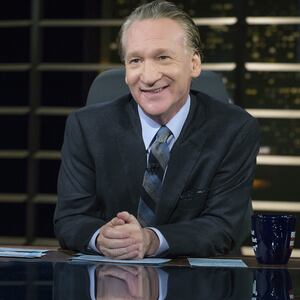On Monday night, Stephen Colbert spent his MLK Day sitting across from Tom Steyer on The Late Show.
To kick things off, the comedian asked the billionaire Democratic candidate for president about the much-ballyhooed moment during the last Dem debate, when he took it upon himself to interrupt Elizabeth Warren’s confronting of Bernie Sanders.
“Number one, everyone’s talking about the debate moment last week between Sanders and Warren. And you’re part of this too,” offered Colbert. “Did you not… I know you’re no part of that argument but obviously you’ve never been a waiter, because you’ve got to read the room! How are you gonna negotiate Middle East peace if you can’t tell that two people were fighting?”
ADVERTISEMENT
“Oh, I knew they were fighting. I’m not deaf!” responded Steyer. “I was going over there to say hi. It was the end of the evening, we’d spent two hours on the debate stage, and I just wanted to say, so nice to see you both, I’ll see you later. And that’s exactly what I did.”
Then Colbert got to the nitty-gritty, grilling Steyer about how he’s essentially bought his way onto the debate stage after spending $24 million on ads in Nevada and South Carolina.
“You have spent more money there than anyone on ads: $24 million. Tom Steyer: Is money speech?” he pressed.
“Money matters—I’m not trying to say it doesn’t matter—but if you don’t have something to say that resonates, then money doesn’t matter,” said Steyer.
Colbert wasn’t so convinced. “What if two people have, like, similar messages, or messages that resonate similarly, but one person gets it out at the tune of $24 million, because money is a problem with our politics now. Should you be allowed to do it, in Tom Steyer’s opinion?”
“Look: I’m for public financing of elections so everybody gets a chance. I actually have a plan of how everybody can get a chance to get money enough to get their message out,” replied Steyer. “But Stephen, I’m running for a very specific reason… No one was talking about what I think the two most important things are in the way they should.”
He then cited “the corporate stranglehold on our government” and “climate change.”







